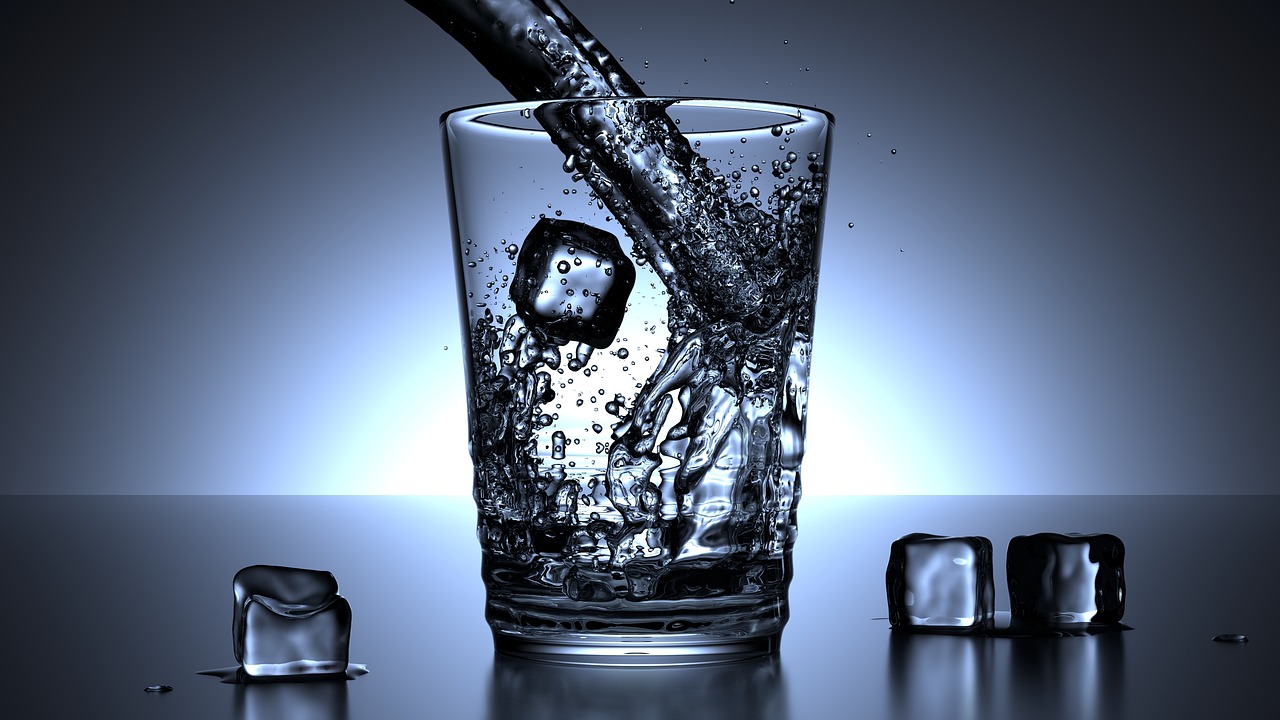Cool, clean and refreshing; high quality running water is one of those little luxuries that we all take for granted. While the supply in the US is generally pretty good, there are steps you can take to improve it. One of those are whole house water filters. They often come with a fairly hefty price tag, but are they worth it?
Understanding Whole House Water Filter
A whole house water filter, as the name might suggest, filters the water supply to your whole home. That means that you’ll get the same great quality out of every single faucet (and appliance, etc too). That gives them an edge over under-sink or countertop versions, but it comes with a corresponding price increase.
How It Works
There are few different things which fall into the category of “whole house water filter” and we’ll get into the nitty-gritty in a moment. First, let’s get a handle on the basic concept.
Water comes into your home through the water main. This is then circulated around your home via your plumbing, using pressure. When you open a faucet (or use an appliance like a dishwasher or washing machine), the water is released. So far, so obvious.
Almost all water contains a certain level of contamination. Usually, it’s a trace amount and it’s perfectly fine to drink. This could be chemical, mineral or biological but whatever it is, it’s basically never pure H2O coming out of your faucet. Home water filter systems of any type aim to remove these contaminates.
A whole house water filter, sits somewhere on this water main, cleaning up your water supply before it reaches your faucets. There are three common varieties and they each do slightly different things:
1. UV Filters
A UV household water filtration system exposes your water supply to a powerful blast of UV light. These are great at dealing with biological contamination such as bacteria. They’re not going to do much for mineral or chemical problems, however .
2. Carbon Filters
Carbon filters make use of activated carbon to ‘soak up’ chemical and mineral contaminates including metals like lead. They’re made by treating carbon with oxygen to create pores and increase surface area. A single pound of activated carbon can have up to 1 acre of surface area!
3. Reverse Osmosis
Reverse Osmosis filters are ideal for removing sediment and heavy metals from your water supply. They use a semi-permeable membrane to trap and drain away contaminates (again, including lead). They’re generally more expensive than the other two and have a limited capacity but are the most efficient at filtration. They also require a storage tank for the filtered water.
Benefits of Whole House Water Filters
Now that we’ve got a grip on what whole home water filters do and how, let’s take a look at some of the benefits they bring:
1. Improved Water Quality
First and foremost, water filters offer a huge boost in water quality, regardless of whether they’re whole house water treatment systems or point-of-use models. Removing contaminates such as sediment, heavy metals, bacteria or anything else is generally a good thing. It can also make your tap water taste better.
2. Health Benefits
While most water supplies in the US are perfectly potable, that doesn’t mean that they couldn’t be better. Contaminates like lead or certain pathogens can cause serious long-term health problems and if you’re exposed, a filter is worth considering. Likewise, sensitivities to certain chemicals can be reduced through filtration.
3. Protection For Plumbing And Appliances
Some contaminates, such as sediment and metals, can wreak havoc with the inner workings of your home’s plumbing. Building up over time, they can restrict flow, reducing efficiency and causing breakdowns. Filtering out the causes of these problems naturally enough reduces the likelihood of facing them- meaning longer lifespans for your washing machine.
4. Environmental Impact
If you find yourself reaching for bottled water constantly, a whole house water filter could vastly reduce your environmental impact. By having easy access to fresh, high quality water, your reliance on pre-bottled can be broken, cutting the amount of plastic waste you produce. Invest in a good metal bottle and a filter- mother earth will thank you.
5. Peace Of Mind
Perhaps the biggest factor when looking at the benefits of a whole house water filter system: peace of mind. Even though most of our water supplies are perfectly fine, accidents do happen and contamination can occur. A household water treatment system means that regardless of which faucet you turn on, you won’t have to worry.
Costs And Considerations
So far, it may seem that installing a whole house water filter is a bit of a no brainer, but as with any project it’s important to get a balanced view before making a decision. No system is perfect after all. Here’s the things you should balance up before calling your plumber:
1. Initial Investment
When it comes to installing home water filter systems the initial outlay can vary pretty substantially. As a general rule, the more efficient and the more taps a household water filtration system covers, the more it will cost.
It’s up to you to balance out whether you want a whole house water filter or a point-of-use model which only covers one sink. There are certainly advantages to the whole house models, but they are substantially more expensive.
Likewise, thinking about what you want to filter out of your water supply will change the price. Reverse Osmosis systems are the most expensive but deal with the most problems.
2. Maintenance And Operating Costs
It’s not just the initial outlay that you have to consider. To remain effective, household water filtration systems need to be maintained. Generally, you’ll need to replace carbon filter cartridges every 6-12 months or your reverse osmosis membrane every 2-4 years. UV filters are powered by electricity and while this is a small cost, it is an ongoing one.
3. Potential Challenges
It’s a good general rule of thumb to assume things won’t run smoothly. Even a fairly simple process can hit complications. Do you have space for a filter or storage tank? How easy is access? All of these questions will influence the cost/value analysis that you should be undertaking before placing a call.
4. Comparison With Other Filtration Systems
Of course, you can still enjoy the benefits of filtered water without springing for a whole house water filtration system. Cheaper options such as under-sink or pitcher filters will still supply you with the same quality, though in a more limited way. With an under-sink unit, your initial outlay will likely be less but only that sink will supply filtered water. Likewise, a pitcher costs next to nothing, but you’re severely limited in quantity and they take time to work.
Ultimately, whether a whole house water filter is worth it can only be answered by you.
How To Choose A Whole House Water Filter
If you come down on the side of “it’s worth it” then you’ve only taken the first step. Next, you need to work out what kind of filter will be best for your situation.
The first step here is to get a water quality test done. You can either call in the professionals or use a send-away kit to find out which contaminates you’re facing. Either of these will give you a detailed report and allow you to make an informed decision.
If your report suggests you’re facing exposure to bacteria, a UV filter is likely the best choice. Should it suggest heavy metals like copper and lead, carbon might be ideal. If it’s more general or particularly extreme, the expense of an RO machine may be worth considering (though generally, they’re only economical for the worst cases).
Next, you’ll have to weigh up capacity. Generally, larger households use more water so will need a filter which can cope with the bigger demand.
If you’re considering having a whole home water filter installed, it’s a good idea to consult with a professional. Any work undertaken on the water main will benefit from the eyes, hands and skills of a seasoned pro and they’ll also be able to advise you on the best choices.
A professional plumber will also be able to help you avoid common installation pitfalls and ensure that everything is working as it should.
Alternatives To Whole House Water Filters
Of course, you may decide that a whole home water filter system isn’t for you. You do still have options though:
Under-Sink
Under-sink filters sit, unsurprisingly, under a sink. They allow the benefits of a filter but will only work on that one faucet. They’re generally a bit cheaper and easier to install, but don’t protect your whole home.
Pitchers and Faucet Filters
Even cheaper again, pitcher and faucet filters are a common option.
Pitcher filters allow you to fill a jug with water which is slowly filtered; they’re cheap and easily available but only allow a small amount of water to be collected at a time.
Faucet filters attach to the end of your faucet and do their thing. They’re pretty ugly though and don’t last forever.
Water Softening Systems
An alternative to a filtration system. If the contaminates you’re facing are mostly calcium, a water softener may be a good solution. They’re great for avoiding sedimentary clogging and can leave clothes softer, dishes cleaner. Some may add sodium to your water supply, so it’s worth considering the health and taste implications too.

